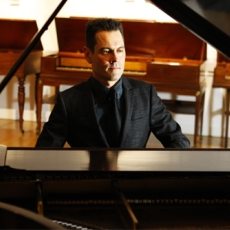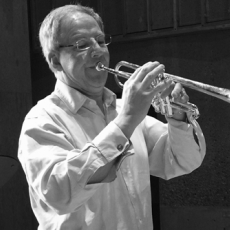Jonathan Freeman-Attwood - A Bach Notebook - International Record Review
This disc by Jonathan Freeman-Attwood and Daniel-Ben Pienaar represents something of a unique undertaking, being neither fish nor fowl: a mixed recital nevertheless unified by consisting entirely of music by the Bach family, not one piece of which was originally written for trumpet, and played on two instruments that didn't exist in Johann Sebastian Bach's day. They nevertheless stick more closely to the text and idiom than Busoni, Stokowski and others, who really airlifted him into a completely different element. It makes for a very interesting experience, not least because the other ten Bachs are familiar more by name than for their music, at least to non-specialists. The pieces were all composed over three generations, with J.S.'s in the middle, so there is music that sounds obviously earlier, perhaps a little like Schutz or Buxtehude, while the younger generation move into a rococo style, even classical. For instance, one of Bach's six sons, Johann Christian, was a successful opera composer based in London, and the piece recorded here is an arrangement of the overture to one of these.
Many of these pieces by the secondary Bachs are of striking lyrical beauty, particularly the Sonata in F by Heinrich, whose wonderfully clean, vibrant liens form a contrast with the much more elaborate shapes of J.S. which precede it. A Polonaise by Wilhelm Friedemann has a remarkable, plangent expressiveness, as does Ich lasse dich nicht by Johann Christoph, a much older cousin of J.S.'s who may have had a hand in it as well. There's a Rondo allegretto written in 1789 by Johann Christoph Friedrich (the fifth surviving son) that sounds heavily indebted to the sparkling finale of Mozart's Concerto No. 17, K453 of five years before, complete with rapid repeated notes on the piano and brilliant passagework. A number by Carl Philipp Emmanuel proves particularly infectious in its unpredictable changes of direction and crazy exuberance, heard to brilliant effect as split between the instruments.
The programme is very well sequenced, with J.S. used a bit like pillars holding up an ornate, heavy ceiling. There is a group of his pieces in the middle consisting of a concerto movement and four chorale preludes back to back. The last of these forms a noble centrepiece to the recital, the developed and grand O Lamm Gottes, unschuldig, while the disc opens in Bach's most impressive manner with the Prelude and Fugue in G Major, and ends quietly with the Sarabande from the Sixth Cello Suite. In addition, there are two slimmer pillars, just for added safety.
As to the playing itself, I can find no fault with it: Jonathan Freeman-Attwood is clearly an amazing trumpeter and Daniel-Ben Pienaar, who has arranged all but one of the items deftly, is more than equal to the technical demands he sets himself. The piano playing is expressive and bold, while still nodding in the direction of restrain in terms of the use of the pedal in comparison, say, with Liszt or Busoni arrangements. By doing so he is more in line with the sound of the trumpet.


